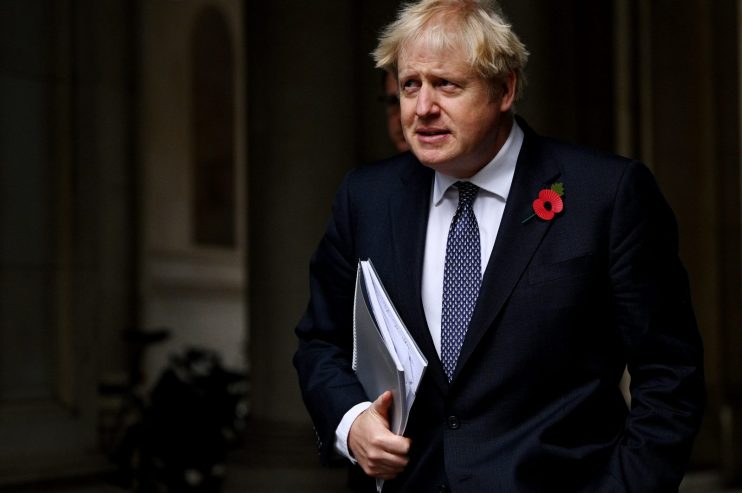Boris Johnson vows to make UK Europe’s greatest naval power with new defence spending

Boris Johnson has vowed the UK will return to its place as “the foremost naval power in Europe” through a landmark increase in military spending.
Johnson said the country will benefit from a “renaissance of ship building”, while also focusing on space-based defence technologies that will destroy “targets with inexhaustiable lasers”.
The government will increase defence spending by 10 per cent a year over the next four years, which translates into a £24.1bn rise.
The current annual defence budget is around £40bn.
Johnson said the spending will go toward beefing up the UK’s naval capabilities, while also investing in space technologies of the future.
“We’re going to use our defence spending to restore Britain’s position as the foremost naval power in Europe,” he said.
“This will spur a renaissance of British ship building across the UK.
“In Glasgow and Rosyth, Belfast, Appledore, and Birkenhead. Guaranteeing jobs and illuminating the benefits of the union in the white light of the arch welders torch.”
He added: “Our warships and combat vehicles will carry directed energy weapons, destroying targets with inexhaustible lasers and for them the phrase ‘out of ammunition’ will become redundant.
“Nations are racing to master this new doctrine of warfare and our investment is designed to place Britain among the winners.”
Johnson also announced the creation of an Artificial Intelligence (AI) agency, a National Cyber Force and a new space force that will aim to launch its first rocket in 2022.
Before the Open newsletter: Start your day with the City View podcast and key market data
It is estimated that the new spending will create up to 10,000 jobs a year annually.
Defence industry body ADS’s chief executive Paul Everitt welcomed the new commitments.
“This investment will boost our national security, help the UK address new and rapidly evolving threats by developing innovative world-class equipment, and support our economic recovery”, he said. “The commitment to key projects will embed high-value design and manufacturing skills in all regions and nations of the UK for decades to come.
“It is important that the procurement regime delivers quickly and in a manner that prioritises UK industrial impact, aiding planning and clarity and helping to build back better.”
Shares in defence giant BAE Systems rose 2.2 per cent on the back of the announcement.
The announcement comes after a decade of funding stagnation for the armed forces and Johnson said today marked the end of “the era of retreat”.
“Reviving our armed forces is one pillar of the government’s ambition to safeguard Britain’s interests and values by strengthening our global influence, and reinforcing our ability to join the United States and our other allies to defend free and open societies,” Johnson said.
“The international situation is now more perilous and intensely competitive than at any time since the Cold War.”
The extra military spending is large victory for defence secretary Ben Wallace at a time where there has been talk of cuts in other areas such as foreign aid.
The UK has spent more than £200bn on its coronavirus response and the annual budget is expected to be at least £350bn – a 12-fold increase from pre-pandemic expectations.
Professor Malcolm Chalmers, deputy director-general at the Royal United Services Institute for Defence and Security Studies (RUSI) think tank, said the announcement was “a remarkable tribute to the persuasive powers of the Ministry of Defence”.
“The Conservative manifesto had committed to an annual real increase of only 0.5 per cent, and even this seemed under threat as the economics of the pandemic and Brexit began to kick in,” he said.
“This will go down well in the new US Administration and with the UK’s Nato allies.”